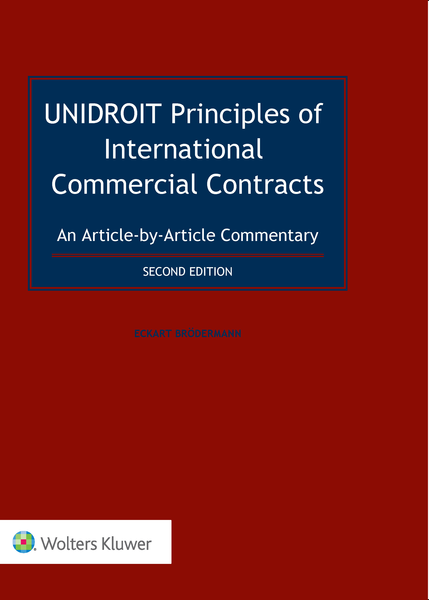
The Unidroit Principles of International Commercial Contracts provide an excellent and practice proven tool for cross-border contracts:
- They constitute a neutral and pragmatic business oriented contractual regime for cross-border contracts
- They contain multiple solutions to typical contractual questions regarding the life of a contract, often by way of a compromise between civil and common law
- They have been referenced in hundreds of decisions of arbitral tribunals or national state courts
- They have been endorsed inter alia by the United Nations Commission on International Trade Law (last in 2021) and the Union Internationale des Avocats (2020) bringing together through its bar association and individual members approximately two million lawyers in more than 110 countries.
Thirty years after their first publication, it is arguably malpractice to ignore them.
In this fully revised and enlarged 2nd edition, the commentary continues to analyse the Unidroit Principles article by article from a practical perspective, while always discussing alternative courses of action, where they apply. The commentary includes proposals for choice of the Unidroit Principles’ clauses and practical guidance for their use as template, or to supplement the CISG or national law. In addition to arbitral and state court decisions and recent literature, the 2nd edition includes an in-depth analysis of extensive legislative material.
The author is a German practitioner with international training and familiarity with both common and civil law. He has been admitted to the New York Bar and also teaches at the University of Hamburg as a Professor of Law. The author is using the Unidroit Principles for more than 20 years in his commercial and arbitration practice, in recent years on a daily basis in multiple industries. As he shares his experience under the Unidroit Principles, the commentary can also be used as a practical guide and checklist of issues to consider in international contracting.
Sample from page 340, no. 6, on Article 7.1.3 (Withholding performance), at C. Options
In long-term contracts (e.g. on parts for serial production), sometimes both parties blame each other and rely on mutual withholding rights. Example: Disagreement on the root cause of and responsibility for certain allegedly defective parts, delivered under a long-term contract on the production of parts for the automotive industry, when it is not (yet) clear whether the parts delivered by the seller were defective, or whether the defect was caused through the combination of the parts with a system environment at the level of the buyer. The buyer withholds payment because of (alleged) claims for damages and the seller withholds further deliveries subject to payment (of the ‘ok parts’ from its perspective). To avoid exploding risks of damages (e.g. through a stand-still of production at the buyer’s or its customer’s production line and subsequent expensive arbitration), it can help to negotiate the following option: that (i) the buyer pays the open invoices; (ii) the seller places a security (e.g. a bank guarantee) for the alleged claim; and (iii) the parties agree to continue performance of the long-term contract and cooperate in the root cause analysis which shall reveal which party is right.
Example from practice (in 2022) where the parties (who acted under old contracts – governed by the CISG as the national law of the seller – when the problems occurred) agreed along these lines in an ‘Interim Agreement’ under the Unidroit Principles and later transferred this solution to a ‘Framework Agreement’, also negotiated under the Unidroit Principles (automotive industry).
Prices are shown in AUD and include GST | Copyright © 2025 Wolters Kluwer



